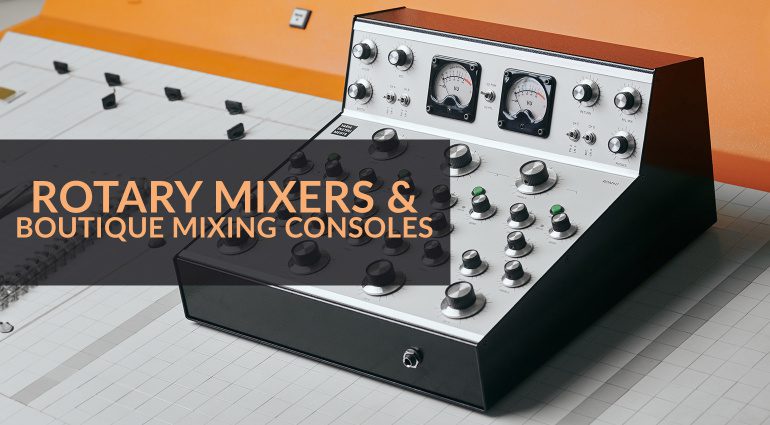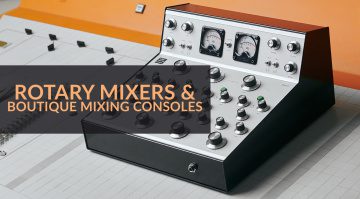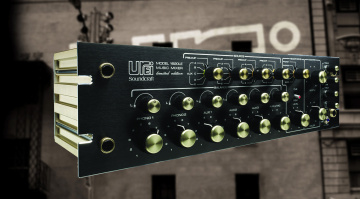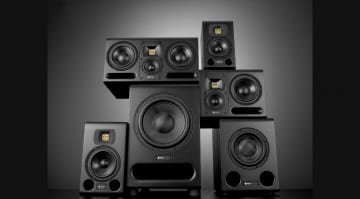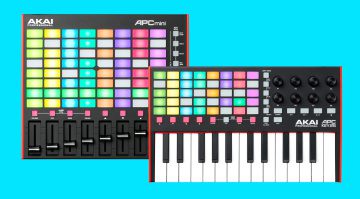The Best Rotary Mixers And Boutique Mixing Consoles For DJs
Tempting rotary mixers from Omnitronic, Superstereo, Bozak, AlphaTheta and more.
Don’t call it a comeback as rotary mixers have been here for years. Elegant, classy and often with an audiophile flair, rotary mixers offer a different DJ experience than one with a fader. Thinking about making the switch to knobs or looking to upgrade for better sound? Read on to find out which are the best.
The Best Rotary Mixers
For many DJs, the first mixer they ever saw had faders. Favoured by hip-hop jocks who incorporate cutting and scratching into their sets, fader mixers make it easy to transition quickly from one channel to the other. However, an alternative has always existed, and for many, it’s the only type of mixer they’ll use. I’m talking about rotary mixers, of course.
Present at the birth of dance music culture in the early 1970s, these elegant mixing units prioritized sound quality over flash, making them a perfect fit for the loft parties and disco palaces of the 1970s. True believers kept the flame alive in the 1990s with vintage units from Bozak and UREI but now, thanks to a rekindled interest in a smooth style of DJing, there are now plenty of new options to tempt your wallet.
Omnitronic TRM-202 MK3 and TRM-402
With their affordable pricing and quality products, Omnitronic makes an excellent entry point into the world of rotary mixers. It’s easy to drop thousands of dollars on a mixer if you’re not careful, which makes Omnitronic’s price points all the more pleasing.
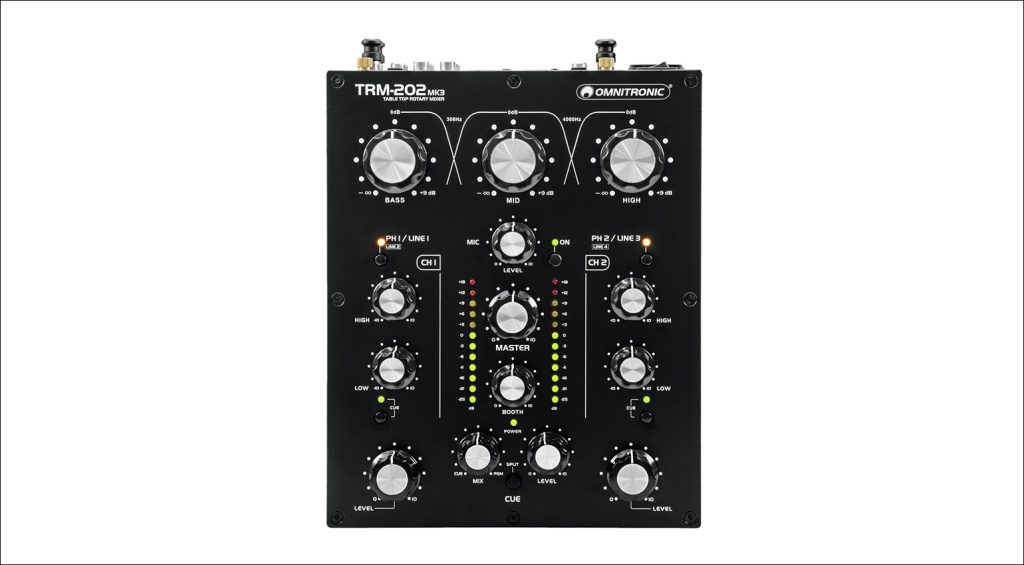
For the budget-conscious DJ who doesn’t need more than two channels, might I recommend the Omnitronic TRM-202 MK3? A smart, all-black package festooned with classic Blue Velvet RK27 ALPS rotary potentiometers, it has low and high EQ pots for each channel. Up top, you’ll want to grab the three-band rotary isolator for some creative mixing.
If two channels aren’t enough for you, move on up to the TRM-402, the four-channel version of the TRM-202 MK3.
For the adventurous DJ, try Omnitronic’s TRM-422, which pairs four channels of rotary mixing pleasure – each with low, mid and high boost and cut – plus that grabby isolator section. And a crossfader for the best of both worlds.

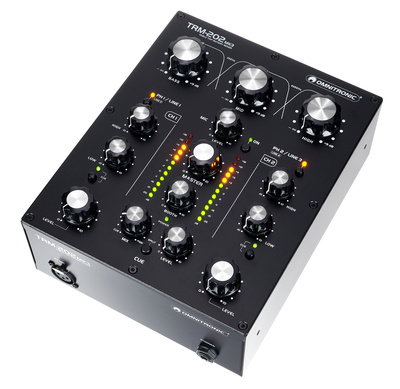

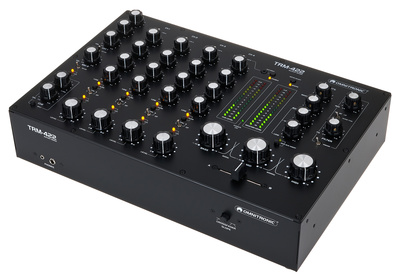

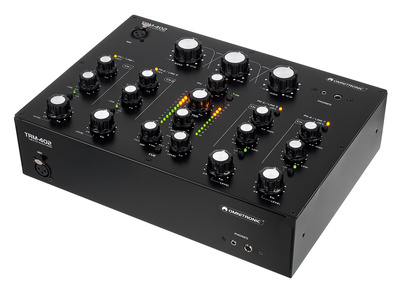

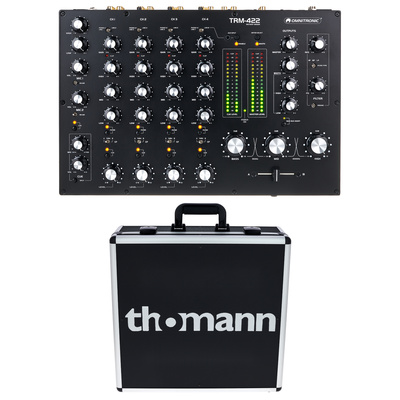

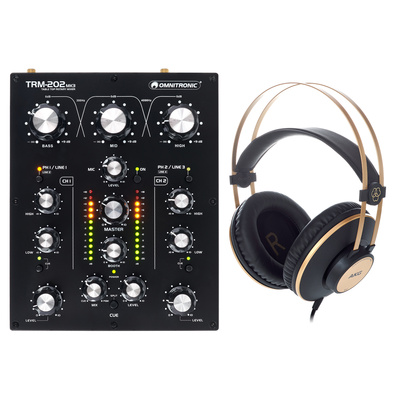
Superstereo DN78LX and DN78LXADB
If you’re serious about sound, please meet Superstereo. Existing at the intersection between DJ Street and Audiophile Avenue, the UK company’s mixers feature a valve stage for additional drive and spacious sound.
The DN78LX is a two-channel affair with fluted knobs, a linear X crossfader and three-band Baxandall EQ on each channel. Phwoar. While you might be gushing over the valves, don’t forget that it has your digital audiophile needs covered as well with a studio-quality 2 x 2 USB soundcard.
Not audiophile enough for you? Then move on up to the DN78LXADB, which brings high-end phono preamps, bakelite-style controls and audiophile-grade discrete outputs to the party. And damn if it isn’t gorgeous.

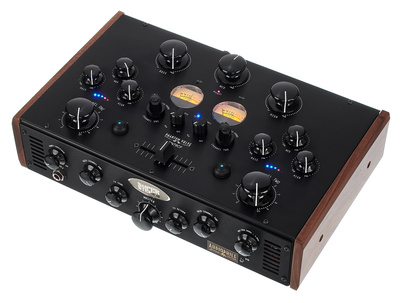

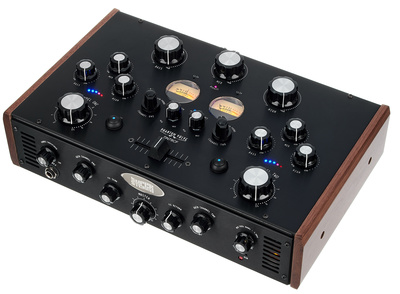
Formula Sound FF-4000 R and FF4.2 R
Another UK-based company, Formula Sound has been in the business of mixers since the glory days of disco. With a focus on sound quality, their mixers are well-renowned and – thanks to a development partnership with sound system designer Funktion One – you know they sound good.
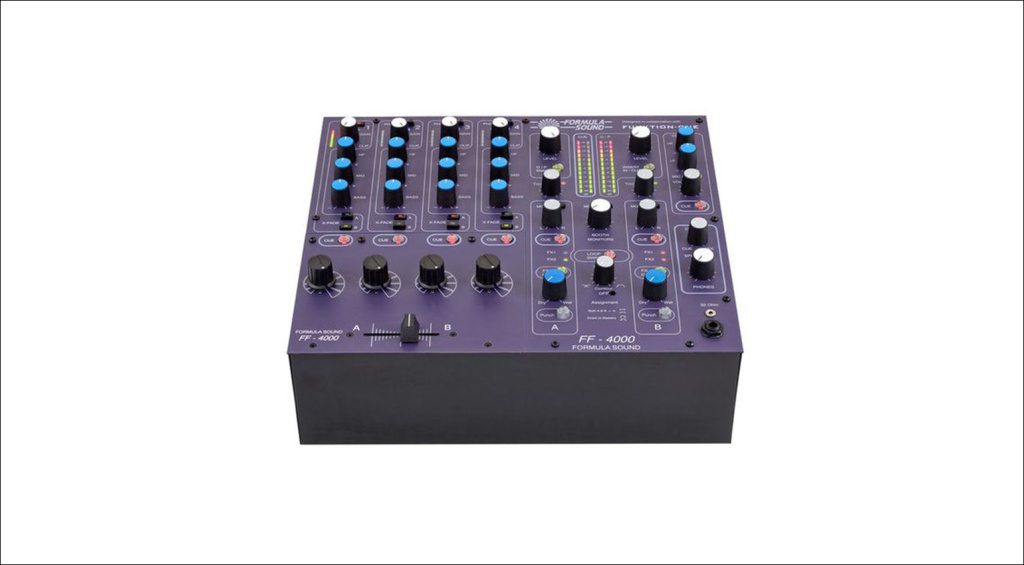
Formula Sound offers a suite of tempting mixers of differing sizes, but I’m going to have to recommend two four-channel boxes: FF-4000 R and FF4.2 R. FF-4000 R is a solid affair with four closely-spaced potentiometers for volume control. Each channel has a three-band EQ. There’s also a crossfader for quick cuts.
“Designed to be among the best analogue signal path mixers in the world,” says Formula One, the FF4.2 R is a four-channel rotary mixer with each channel possessing a four-band full kill EQ plus variable frequency high and low pass filters. Oh, mama. And, with a distortion less than 0.01% at +10dB and a noise floor lower than -80dB with no input, you can expect seriously good sound.

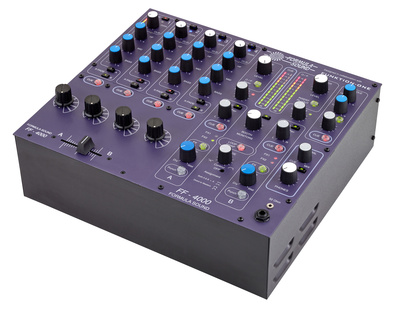

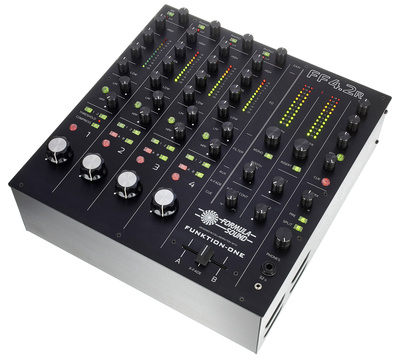
Bozak AP-2 and AR-4
Few names in DJ mixers hold as much clout as that of Bozak. The American electronic designer created the world’s first rotary DJ mixer, the CMA-10-2DL, back in the 1960s. The CMA series was later cloned by UREI in the 1970s for its 1620, and then re-released by Soundcraft in the 1990s as the 1620LE. The name is now owned by a UK manufacturer, which hand-makes new Bozak mixers to order.
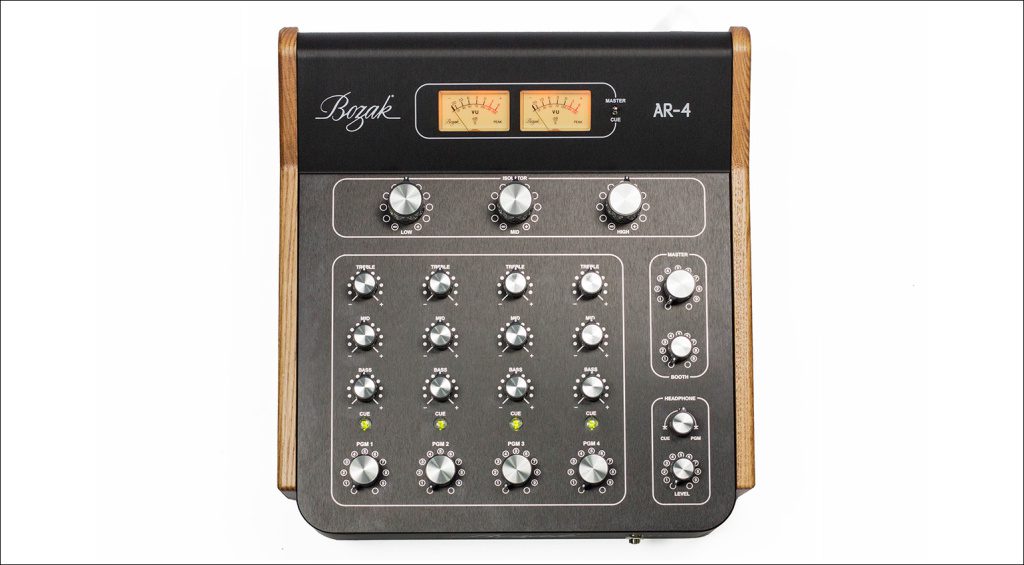
The AP-2 is a compact two-channel desktop mixer with an individual three-band EQ/isolator on each channel. They’re fitted with ALPS RK27 Blue Velvet pots, carbon resistors, environmentally sealed switches and polyester mylar capacitors, “all culminating in Bozak’s signature rich warm sound,” says the company. It costs £1200.
The AR-4 is the AP-2’s big brother and, as the model name suggests, it’s a four-channel job. At £1695 it’s slightly more than the two-channel model but it features the original Bozak CMA-10 discrete circuits along with some high-quality semiconductor topology. Each channel features a three-band EQ/isolator. It also has ALPS RK27 Blue Velvet pots. And, with its removable hardwood trims, gosh if it isn’t the prettiest thing.
Varia Instruments RDM20 and RDM40
Another company making extremely high-quality rotary mixers is Varia Instruments. Based in Switzerland, the company handles all orders and manufacturing itself. It offers two mixers, RDM20 and RDM40.
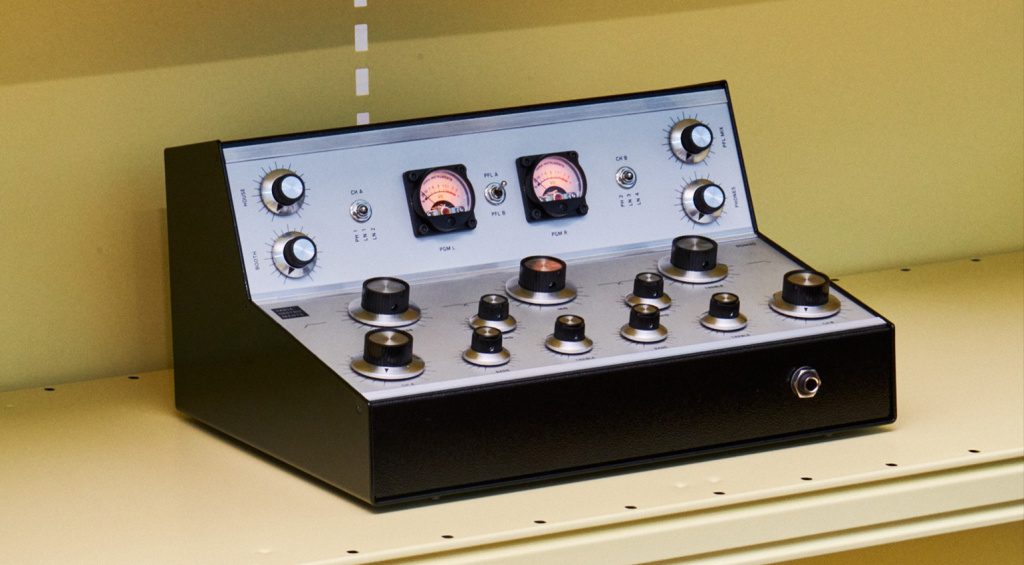
Both silver and black, with an appearance that recalls vintage hi-fi gear as well as a science fiction space panel, the RDM20 and RDM40 differ in that the former is two-channel and the latter four-channel. They feature two different three-band EQs, one type on each channel and the other, steeper one on the master. “You can totally release your creativity with the combination of those two isolators and it’s big fun to mess around with these knobs – believe us!” says Varia. And they aren’t kidding.
Mixers like this aren’t cheap but for the serious DJ or audiophile, they may be worth it. The RSM20 sells for 2190 Swiss Francs (around $2400) while the RDM40 is CHF 3490 ($3800)
MasterSounds Radius 2 MK2, Radius 4 MK2, Two Valve MK2 and Four Valve MK2
For a mixer less self-consciously vintage-looking, check out what MasterSounds has to offer. The UK company builds a range of rotary mixers that look smart in a military tech kind of way – and now with all products sporting a new satin grey colourway.
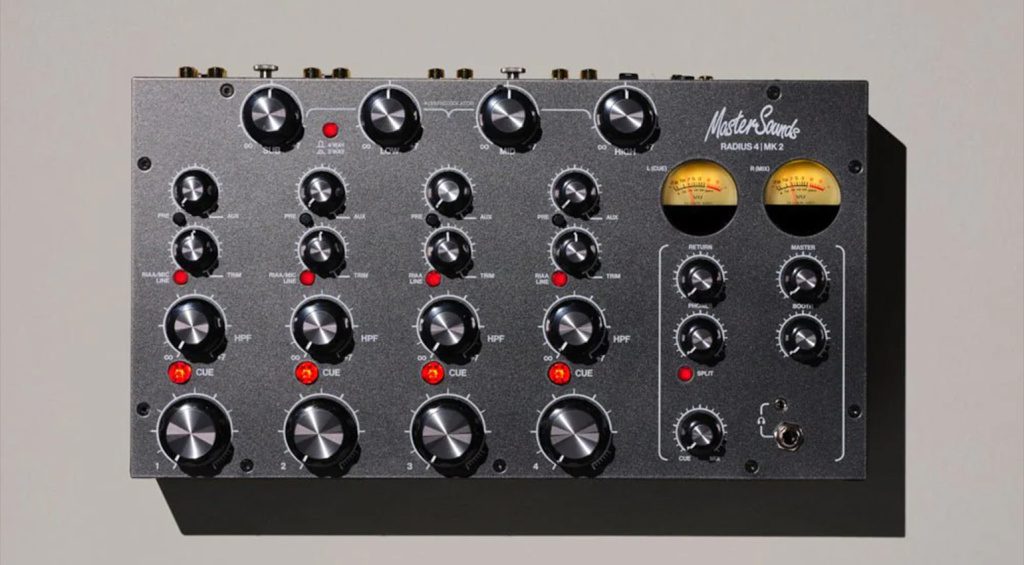
The Radius series features a 4/3 band isolator (that’s low, medium and high plus sub), Variable-Q high-pass filter on each channel that pulls EQ/filter sweep double duty, and a new, redesigned internal circuitry for an open and dynamic sound. The two-channel Radius 2 is £945 while the four-channel Radius 4 goes for £1275.
Made in collaboration with DJ gear outfit Union Audio, the Two Valve MK2 and Four Valve MK2 feature (no points for guessing right, sorry) matched dual triode valves which form part of the input buffer stage to the VCAs. They also feature the Variable-Q high-pass filter and three-band EQ per channel plus another three-band on the master. An Innofader crossfader completes the package. Two Valve MK2 is £1945 while Four Valve MK2 will set you back £2745.
AlphaTheta Euphonia
Lastly, I’d be remiss if I didn’t mention AlphaTheta’s https://alphatheta.com/en/ hotly anticipated euphonia. While not available as of the time of publication, it has enough cool features to get this DJ’s mouth watering.
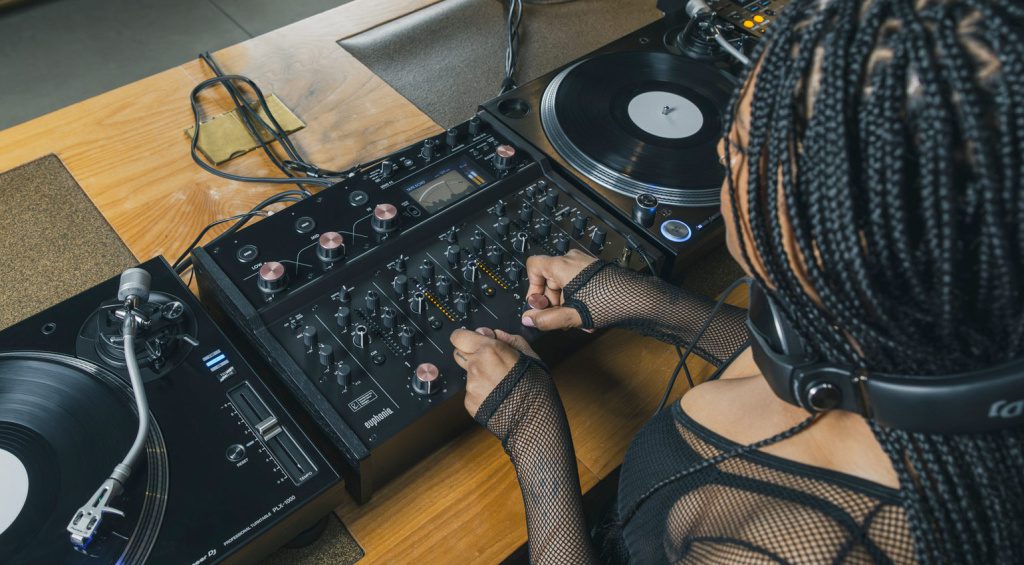
Check it out: four channels with three-band EQ on each channel plus a master three-band isolator (with sends!) on each band. It keeps going: an Energy Visualizer with four virtual VU meter needles, a master level meter and a spectrum analyzer. And! A transformer stage supplied by Rupert Neve Designs.
There’s more. An analogue/digital hybrid, euphonia has 32-bit A/D and D/A converters as well as 96kHz/64-bit floating point mixing processing operations in the DSP, handy when selecting digital input from Rekordbox or Serato DJ Pro. There are also effects including a built-in high-pass filter, delay, tape echo, echo verb, reverb and shimmer, as well as connections for external stereo effects.
The catch? AlphaTheta’s euphonia will cost $3,799 MSRP. Start saving your pennies.
 4,5 / 5,0 |
4,5 / 5,0 | 